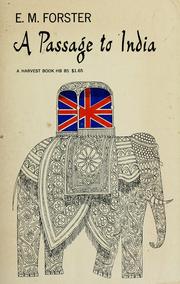I heard the movie was horribly violent, something I'm extremely sensitive to, so I never saw Twelve Years a Slave. I happened to come across the book at a bargain table in Walmart. The price, an alluring $2.97, motivated me to pick the book up and glance through it. When I realized that it was a non fiction book written by a former slave of the 19th century, I bought the book and read it in a couple of days.
Solomon Northup was a free black man born, educated and raised in the north until in 1841, around the age of thirty, he was kidnapped and sold into slavery in Washington DC. He was married at the time and had children but none of them knew how or why he disappeared until twelve years later.
Perhaps most of you have seen the movie so I don't need to retell the story. Instead I will touch upon those things which most impressed me.
First, Northup is an eloquent story teller. His writing skills attest to the type of education he received and the ability of black people to become well educated and cultivate their God given intelligence like any other race. That seems an obvious thing to say today, but it must have been surprising, even amazing at the time the story was written. One of the justifications used to enslave black people was that they weren't as "evolved" as white people.
Another thing that impressed me was the even handed story telling. Northup could have demonized every white person in his story but he chose to speak honestly of his experience. He speaks of his first owner, William Ford, as a God-fearing, kind and merciful man. He treated his slaves with justice, never forcing them to work more than they could bear and as a result received far more work out of them than any tyrant would have. Northup observes that if all slave masters were as Mr. Ford slavery would never have died out because men and women under such care would have been content to serve all their lives.
Ford was the exception rather than the rule, however. Northup makes an acute commentary of the dastardly effects slavery has upon the human soul. Not only does it rob the slave of dignity and humanity, it brutalizes the slave owner as well. People who could have been kind, caring, and edifying citizens were reduced to brutish thinking, robbing themselves of any dignity or respect they might otherwise have possessed had they not been slave owners.
And unfortunately for Northup, the next owners he served under certainly vied for the prize of being the most despicable, hateful, animalistic monsters ever to plague the planet. Northup describes in heart breaking terms the savage treatment under the hands of people who suffered no accountability for their actions. At least not while alive.
The final thing which impressed me, and I don't know if the movie brought this out, was Northup's Christian faith that gave him the strength and hope to press on through his trials, knowing that one day there would be a deliverance and a reckoning, even if at the time he didn't know if it would happen during his lifetime. I believe that is why there is no trace of bitterness in his account of his ordeal.
Another interesting point to the story was Northup's meticulous descriptions of life on plantations. He details the daily routine of slave life, cotton harvesting and also of corn. These descriptions make his book a valuable record of history.
I'm glad that instead of spending the rest of his days shaking his fist at God and asking "why?" Northup instead used his twelve years to expose the evils of an accepted practice and contributed to its eventual elimination.
Solomon Northup
Fully illustrated 1853 Edition:






